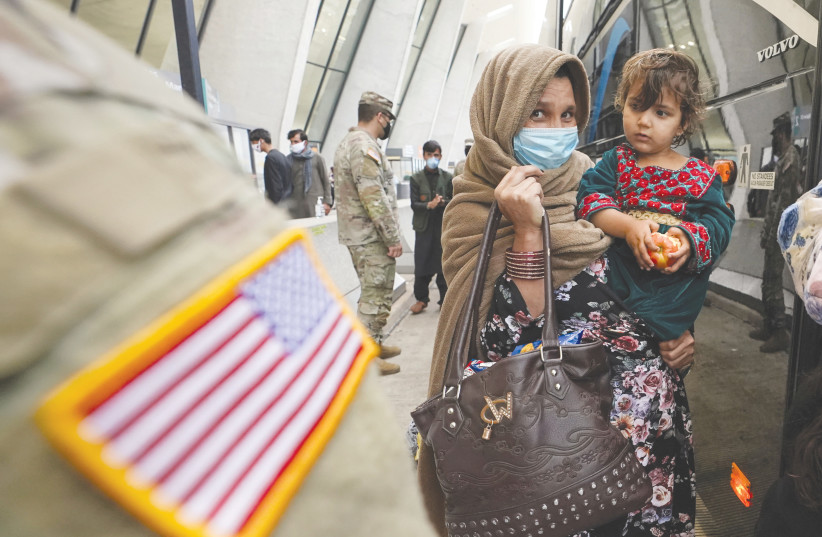Afghan refugees being held in camps in Abu Dhabi in the United Arab Emirates have been protesting every day for the last week over their frozen status, as they wait to receive a visa and be transferred to the United States which they say they were promised when the US withdrew from Afghanistan in August 2021.
Most of the refugees who have been living in the camps in Abu Dhabi for the last several months fled Afghanistan because they felt threatened by the Taliban, mostly for having ties to any US organization operating in the country during its 20-year presence there, or being involved in the former government which remained in power with the support of the US forces.
Ruhallah Mayar is a resident of a refugee camp located far from the capital city of the emirate of Abu Dhabi. Mayar told The Media Line that the refugee protests have been peaceful, however, local authorities in the UAE have deported a few people who they think are leading them.
Mayar told The Media Line that the reason he fled his country was that, before the Taliban’s takeover, he was working with the US armed forces as a translator and a cultural adviser.
He says he felt staying in Afghanistan would put him at great risk. “My life was in danger, and I was not able to go everywhere freely, and feared that the Taliban would capture me and kill me as I was threatened and warned by them before,” he said.

Mayar said that he was promised that he would be evacuated to the United States directly, but that he was taken to the UAE to complete some medical processes and screening. “And still, no evacuation happened so far,” he added.
Mayar explained the situation in the refugee camps is not easy, despite the fact that that they are being provided with food, water and housing – for which he says he is thankful to the UAE.
“We are being housed here with thousands of Afghans. It’s very difficult living here for such a long time,” he said. There are about 12,000 refugees being housed in the camps.
“People are depressed, and children are away from education and social life. It is just like being in the prison,” he also said.
Walid Rahman, a specialist in migration, governance and resettlement, and a former policy advisor for the Office of the President of Afghanistan told The Media Line that there are some key reasons why processing the refuges’ applications is taking so much time for the US authorities.
He said that regular bureaucracy seems to be the main reason for the delay in the process. “It might take months if there is no special consideration given to these people,” he added.
“Security clearance and checking their eligibilities based on their connections directly or indirectly with the United States also delays the process,” he said.
A spokesperson for the US State Department said that the US screening and vetting of vulnerable Afghans is continuing and that "safe and orderly" travel to the United States will be facilitated for those who qualify.
Rahman added there is concern that, if only eligible Afghan applicants are taken to the United States: “What will happen to the thousands of people, particularly women and children, who were brought to the UAE?”
Mayar’s concerns, as a resident of the camps, go even further. He said that the real problem “is that my family is in Afghanistan, and they need my support. I am the only breadwinner for them. I need to work and support them financially as well in any other way.”
“Life is hard in Afghanistan for them, no one works and earns money. How can I stay here, and my family has nothing,” he continued.
Mayar says that the future is uncertain. “I have no idea of what will happen in the next few months,” he explained. “They say ‘after getting your approval and completing the medical and administrative process only then, we will issue you a visa here at the US Embassy in Abu Dhabi and then you will be evacuated to the States.’”
Rahman pointed out that the Biden administration has pledged to help evacuate those Afghans who are at risk, but the protesters, he said, “are worried as there is no clarity about when they will be taken to the United States.”
“It seems those who have SIVs (Special Immigrant Visas for Afghans) and have applied for a US visa will be helped to leave to the US in coming months, but for the rest, the process will take more time if special consideration is not given to these thousands of people including children and women, and former Afghan security forces who have fought alongside the US army,” he concluded.
“Many are still hopeful that the US will do something,” Mayar said. “Thanks to the volunteer and advocacy groups that are helping the Afghan voice to reach the US Congress.”
